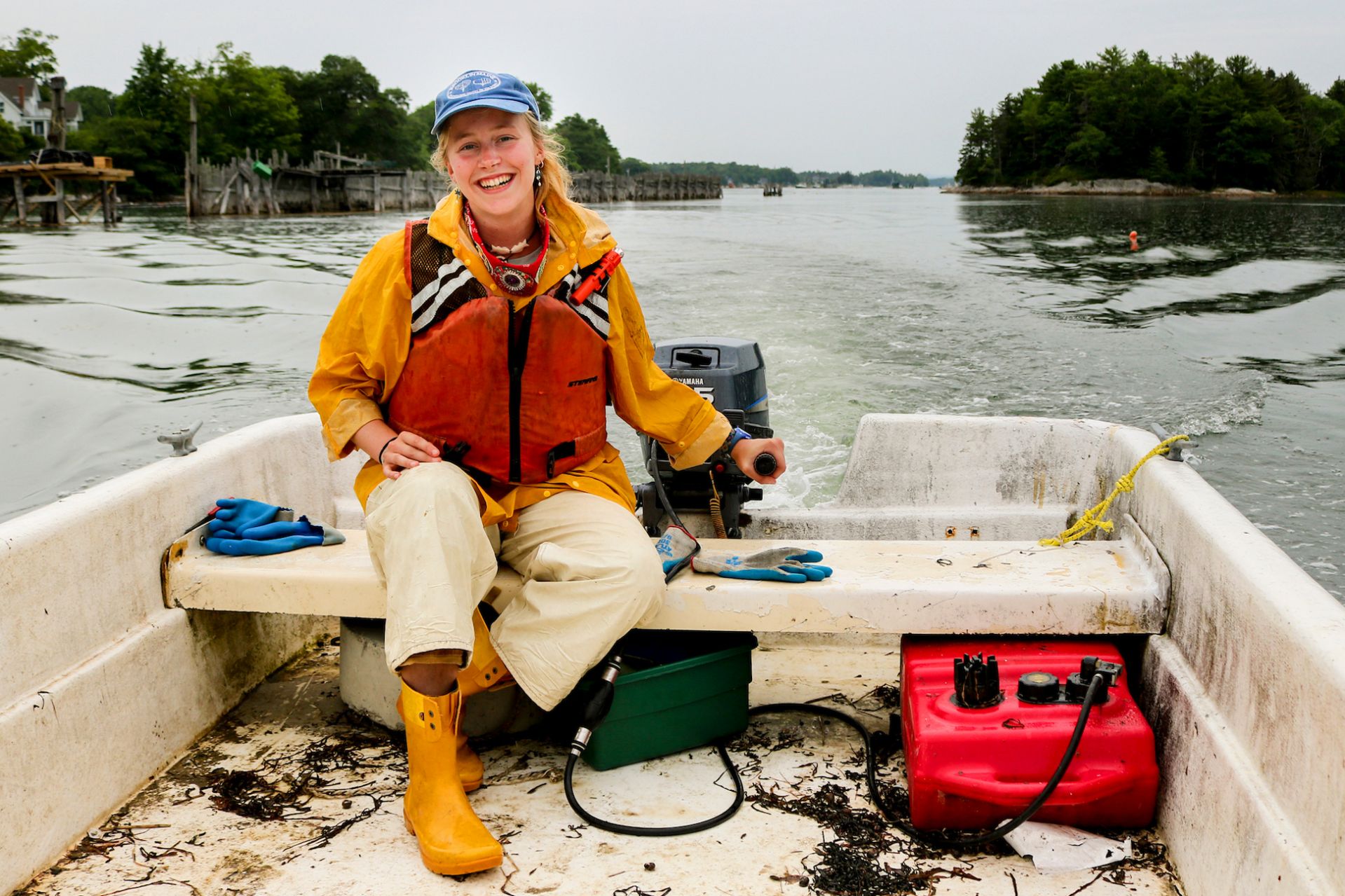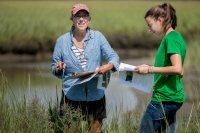
College joins nationwide carbon-neutrality pact
Bates is one of eight colleges and universities in Maine, and more than 100 nationwide, to sign an agreement to become “carbon neutral” — that is, to reduce institutional emissions of carbon-based greenhouse gases such that they no longer increase the atmospheric total of such gases.
In February, Bates President Elaine Tuttle Hansen signed the American College & University Presidents Climate Commitment. She is one of 62 chief executives in the coalition’s Leadership Circle, which provides guidance, peer encouragement and direction to the effort.
Hansen’s commitment on behalf of the college came just weeks after the Intergovernmental Panel on Climate Change, established by the World Meteorological Organization and the United Nations Environment Programme, issued a report that leaves little doubt about the link among human activity, greenhouse gas emissions and the warming of the Earth’s climate, a phenomenon with potentially devastating consequences.
“Many Bates students, faculty and staff members are vitally concerned about all aspects of environmental stewardship,” Hansen says. “We’ve worked hard for many years on researching and teaching about the environment, and Bates also has a proud history of success in programs ranging from Dining Services’ food-waste management to our recent decision to purchase green energy.”
She says, “The time was right for Bates to step forward.”
Patterned after the U.S. Mayors Climate Protection Agreement, the ACUPCC commits Bates and its fellow signatories to an ultimate goal of eliminating greenhouse gas emissions through a five-step process:
1) Completing an institutional inventory of emissions (which in Bates’ case should be done this spring); 2) setting a target date and milestones for achieving climate neutrality; 3) taking immediate short-term steps to reduce emissions; 4) integrating sustainability into the curriculum and the educational experience; and 5) making the action plan, emissions inventory and progress reports publicly available. (The agreement also calls for participants to step up research relevant to climate change.)
“Colleges and universities play a very important role in sustainability,” Hansen says. “We are, after all, educating future leaders, so we have both a special responsibility and a special opportunity to instill students with a sense of the urgency and complexities of finding solutions to the problems of living on Earth.”
She adds, “As institutions, we should also be able to demonstrate operationally how to make innovative, sustainable choices. And we should encourage other institutions to follow our lead in working to protect the environment.”
Winning individual hearts and minds to the cause will be key to the Bates effort, says environmental coordinator Julie Rosenbach. “We can work on policies, incentive programs and infrastructures to help people with their decisions,” she says.
“If you tell people, ‘We have to stop climate change,’ it’s totally overwhelming,” she added. “But if you give them concrete steps to take, most people are interested.”
Three national nonprofit organizations that advocate environmental sustainability initiated the ACUPCC: EcoAmerica, Second Nature and the Association for the Advancement of Sustainability in Higher Education. The latter two are involved specifically with higher education.
Presidents Bernie Machen of the University of Florida, Michael Crow of Arizona State University and Jo Ann M. Gora of Ball State University were among the first to sign the commitment, late last year. As of March 5, 108 colleges and universities were on board.




